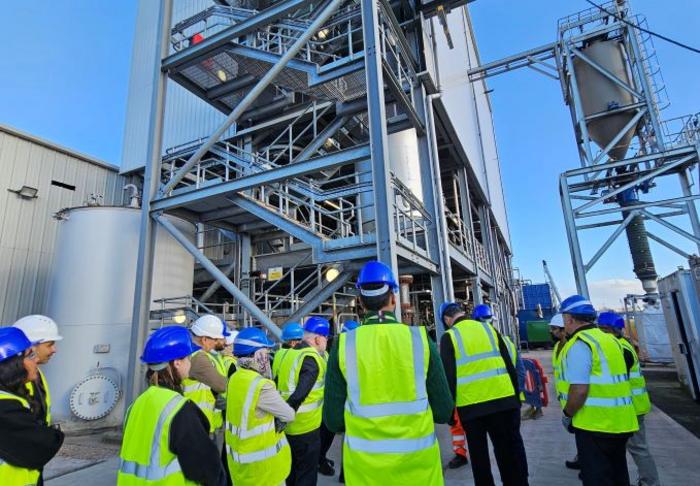Aston University researchers are to help turn waste into energy to power new cities in the desert.

Credit: Aston University
- Energy will help power new cities in the desert
- Aston University is in talks about converting waste products into vital energy
- Its Energy and Bioproducts Institute is experienced in the waste-to-energy sector through global collaborations.
Aston University researchers are to help turn waste into energy to power new cities in the desert.
The University has started talks with experts from Saudi Arabia, including those who are building two sustainable cities in the desert, called NEOM and The Line.
They are to collaborate with Aston University and its Energy and Bioproducts Research Institute (EBRI) to explore how they can convert waste products into vital energy.
The scientists and engineers are to apply their expertise to help Saudi Arabia create technology to convert discarded matter into a source of energy and other innovations such as using date palm waste to transform desert sand to allow it to retain water and grow crops.
Aston University also hosted a two-day conference in March to discuss how to develop and apply the technology.
The event is a key element of the UK-KSA Waste2Energy project supported by the Foreign, Commonwealth and Development Office under the Gulf Strategy Fund (GSF) programme and is led by senior lecturer in mechanical, biomedical and design engineering Dr Muhammad Imran.
More than 70 delegates attended the conference, including representatives from King Abdulaziz City for Science and Technology (KACST), King AbdulAziz University, The National Research and Development Center for Sustainable Agriculture and the Saudi Investment Recycling Company (SIRC).
Professor Patricia Thornley, director of Energy & Bioproducts Research Institute, said: “The delegation chose to collaborate with and visit EBRI because we have common research goals, but some complementarity facilities and skills. We are looking forward to working together to develop some the shared priorities we have identified.”
Tim Miller, EBRI director of engagement, added: “Aston University has extensive engagement in the waste-to-energy sector through substantial industrial and academic collaborations globally. Advancements made by institutes like EBRI in waste-to-energy technologies are continually contributing to sustainable energy development.”
“The meeting provided an insightful overview of the project, emphasising the significant opportunities it offers to UK industries and academia for funding, collaboration and PhD opportunities.
“Our special appreciation is extended to Naif Makki from the Ministry of Energy, Saudi Arabia and his colleagues for their valuable participation.”
The event ended with a tour of the EBRI lab and biochar demonstrator plant and a visit to Kew Technology’s Sustainable Energy Centre in Wednesbury.




